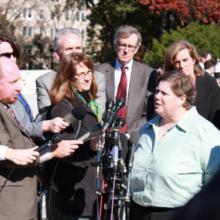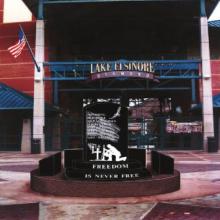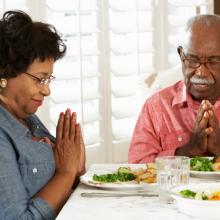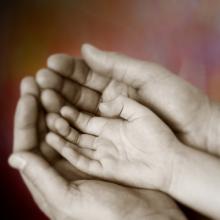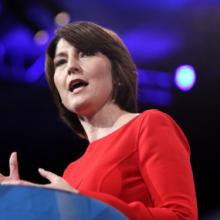Prayer
Last week, the men on Tennessee’s death row, four of whom have scheduled execution dates in the near future, invited Gov. Bill Haslam, the man who signs the death warrants, to join them for prayer
The backdrop for the story is that Tennessee has more executions scheduled in a year than the state has had in the past 50 years. Last week as Christians around the world remembered Good Friday, the day Jesus was executed, legislators in the Bible Belt state passed a bill to reinstate the electric chair (which would make it the only state to require death by electrocution). The only thing that could be more troubling would be if Tennessee decided to start crucifying people again. I even heard one politician defend his position saying, “It is God’s job to judge them, but our job to get them to Him.”
The U.S. Supreme Court will soon rule on the constitutionality of prayer at public meetings. But a new survey finds U.S. voters clearly favor prayer – as long the public prayer is generic and not specifically Christian.
A Jew and an atheist brought suit in Greece, N.Y., saying the Christian prayers excluded many citizens and violated the Constitution, which bans government establishment of religion. Even when the town began inviting non-Christians to give invocations, the “establishment” issue remained a question.
It’s been a year of struggle and a year of rejoicing. We wanted to give you a glimpse into our lives here at Sojourners and also ask for your prayers. In particular, we hope that you will pray for our dear colleague and friend to many of us, Elizabeth Palmberg, or as many know her, “Zab.” You might have read some of her reporting or commentaries in the magazine or seen some of her videos about prayer, bread making, and other topics. If you’ve read the magazine or used one of our resources since Elizabeth arrived as an intern in 2002, you have likely seen something created, influenced, or just plain made better by Elizabeth.
I finished my first Boston Marathon in 2002, running with two parishioners to raise funds for our church. The experience was exhilarating, and I’ve run the course six times since, relishing each year the cascade of powerful moments. Speaking as a preacher, the marathon was the sermonic gift that kept giving: the challenge of Heartbreak Hill, the boost even we slow runners get from cheering multitudes, the necessity of water and salty snacks. And Hebrews 12 gives us our text: “Let us run with perseverance the race that is set before us …”
With last year’s Boston Marathon, however, everything changed. Our church did have a runner in the race — he crossed the finish line six minutes before the first bomb exploded — but any interest in locating metaphorical gems was overshadowed by the real-time incursion of evil. Some parishioners knew victims, others were near the scene, and everybody joined in the immediate grieving of our city.
When we learned later that the perpetrators were Muslim, we felt another round of anguish, fearing that the incident could trigger a wave of religious prejudice and bigotry.
Create your own memorial prayer altar in remembrance of those you love and will never forget.
As the Intergovernmental Panel on Climate Change (IPCC) releases a groundbreaking and comprehensive report detailing the impacts of climate change as “severe, pervasive, and irreversible,” young evangelicals across the United States are coming together to pray for urgent and responsible climate action to protect life and defend their future. Organized by the Young Evangelicals for Climate Action, the Evangelical Environmental Network, and Renewal: Students Caring for Creation, prayer events are being held across the Nation — and on more than 20 Christian campuses — in recognition of April 3 as the 2014 National Day of Prayer for Climate Action.
While evangelicals are not typically associated with climate action, YECA spokesperson Ben Lowe points out,“Climate disruption is not just a scientific or political issue — it’s first and foremost a moral issue and biblical issue … It’s about protecting life and, as evangelicals, we’re particularly concerned about the ways our pollution and political inaction is affecting the poor and those who are most vulnerable.”
Communities around the world are already experiencing the negative impacts of climate change. The new IPCC reports details how the poorest countries are being seriously affected by climate change, with severe consequences to global food security, human health, and economic development. The poor will not be the only ones influenced by climate change, as IPCC Chairman Rajendra Pachauri says, "Nobody on this planet is going to be untouched by the impacts of climate change.”
IS IT WRONG for a Christian to pray to Allah? When a Muslim worships Allah, is she worshiping God?
Questions like these have arisen with more urgency than usual in the months since a Malaysian lower court ruled in October that the word “Allah” was exclusive to Muslims and therefore the Herald, a Malay Catholic newspaper, could not use the word “Allah” in print. (The decision is currently under appeal.)
Many Christians lament the lower court’s decision. They see it as an infringement on the rights of religious minorities. But other Christians welcome the ruling. They claim that it actually helps Malaysian Christians by protecting them from confusion and preventing them from making a grave mistake.
For example, Albert Mohler, president of Southern Baptist Theological Seminary here in the U.S., has argued that Christians should not call upon the God of the Bible using the word “Allah,” because “Allah” refers only to the god of the Quran, a god who is radically different from the true God of Jesus Christ.
Whether Mohler and those who agree with him are right carries dramatic implications. If they are, then prospects for respectful, trusting cooperation between Christians and Muslims are slim. There is one and only one God. If Christians believe that Muslims do not worship that God, then we must believe that Muslims worship nothing, an empty, created idol, or else something demonic. The claim to worship the one and only God is one of the most central claims of Islam. No matter how respectfully a Christian denied that claim, it would be difficult for most Muslims to receive that rejection. Mutual respect is an important ingredient in public cooperation. Thus cooperation between Christians and Muslims would be impeded. Even more disconcertingly, if the bulk of Christians held, as some do now, that Muslims actually worship a demonic force, then those Christians would have compelling reasons not to cooperate with Muslims. To do so would be to cooperate in opposition to God.
Sloth. It’s not just a strange, adorable animal we love to watch in videos. It’s also one of the “Seven Deadly Sins,” and one that I find hanging around in my daily life.
I didn’t think about sloth in particular when I chose my Lenten practices for this year, but it turns out to be the very beast (sorry) I’m trying to walk away from.
To be clear, I’m a pretty active person. I walk to work, run long distance, and I’m also very social. But the fact is, every night I look forward to getting home and enjoying what I tell myself I’ve earned: as much time on the couch watching TV and eating as I want. It’s relaxing, I figure, and takes no mental or physical energy.
This is the proverbial sloth in the room.
Yes, unwinding is good, but here’s the problem: I’m not really getting any rest from this. Sure, I’m lounging, and my brain takes a rest if I’m watching something inane; but as a Christian, rest means something different than it does for other people. Rest means Sabbath. Sabbath is the day of the week that we hold sacred, the day when we rest from our usual work and worries, the day that we give back to God and use to worship God. So ironically, my approach to getting the sloth out of my life is to bring the Sabbath into it, at the end of each day.
Editor's Note: Fred Phelps, founder of Westboro Baptist Church — best known for anti-gay demonstrations that include picketing soldiers' funerals — is reportedly near death. The following is offered as a prayer.
Good and gracious God,
We lift up a prayer
for the misguided –
for those who hate
and belittle
and abuse
in your name.
For those
who wish to see
the hate go on,
the anger be fed,
the world continue
on its unsustainable path
of division and judgement.
I became a member of Young Koreans United (YKU), a Korean American grassroots group providing solidarity to the people’s movement for democracy, human rights, and reunification of Korea in 1986. YKU was instrumental in forming the National Korean American Service & Education Consortium (NAKASEC); established 20 years ago to build a progressive Korean American voice on major civil rights issues. I joined the NAKASEC board a few years back. Throughout this time, I have tried to provide a clergy presence whenever I can to show that ending the suffering of immigrant families, including that of the 1 out of 7 undocumented Korean Americans, is also a concern of persons of faith.
IN THE PRESIDENTIAL election in Honduras last November, ruling party candidate Juan Orlando Hernández was declared the winner despite serious irregularities documented by international observers. Violence and intimidation marked the campaign period, including the assassination of at least 18 candidates and activists from Libre, the new left-leaning party.
Hernández, past president of the Honduran National Congress, supported the June 2009 coup. His record of operating outside the rule of law includes bold measures to gain control over the congress, judiciary, military, and electoral authority. He helped establish a new military police force in August 2013, deploying thousands of troops to take over police functions. Hernández ran on a campaign promise to put “a soldier on every corner.”
Honduras has been named the “murder capital of the world,” with relentless violence coming from crime, drug cartels, and police corruption. Attacks on human rights defenders and opposition activists have been brutal and have allegedly involved death squads reminiscent of the 1980s. Those working to reverse poverty and injustice receive death threats, priests and lay leaders among them. They are bracing for even greater repression under Hernández’s administration.
The growing militarization of Honduran society, justified as a way of fighting crime, is fueled by U.S. support for the country’s security forces—forces reportedly involved in widespread human rights violations. By denying the repression against social movements, and congratulating the Honduran government for its supposed progress on human rights, the U.S. Embassy has made it possible for rampant impunity to continue.
A California federal judge has rejected a proposed religious memorial at a publicly owned baseball stadium as a violation of both federal and state laws.
On Thursday, U.S. District Judge Stephen V. Wilson of California’s Central District ruled that a granite monument depicting a soldier kneeling in prayer before a cross lacked “a secular purpose” and has “the unconstitutional effect” of endorsing religion over nonreligion.
The decision came nine months after a lawsuit was filed by the American Humanist Association, a national organization of nonbelievers. The memorial was planned for city property in Lake Elsinore, Calif., a community of about 53,000 people in Southern California’s Riverside County.
Praying out loud had almost become a telltale sign of who was a true Christian and who wasn’t. To this day, I’m not sure (with levity) that you can get served in some parts of Dallas or Grand Rapids if you don’t pray before your meal.
I’ve been pondering this practice for a couple of years now, ever since Tim Tebow’s rise to fame. After touchdowns, he would get down on one knee, bow his head and pray. That gave way to a national phenomenon, “Tebowing,” defined as “to get down on a knee and start praying, even if everyone else around you is doing something completely different.”
Some Christians cheered Tebow for his Tebowing — a bold, fearless demonstration of his faith before millions. He was not ashamed of Jesus. No siree!
On the flip side, some wonder why Peyton Manning doesn’t get with the program, since he also claims to be a Christian. But the superstar Super Bowl quarterback doesn’t feel the need to display his piety. What’s up with that?
Editor's Note: The following is an excerpt from Joy Carroll Wallis' chapter of the book Faith Forward: A Dialogue on Children, Youth and a New Kind of Christianity.
“Offering your child to God is a way of offering yourself to God again, and it felt that way to me. For the religious and not, there is a powerful spirituality in the birth of a child. Already, we’re learning a little about the unconditional love of God for us in the way we feel about our own child. Through one of the most universal human experiences, parent after parent is taught the lessons of love and life. And all is grace.” – Jim Wallis, following the birth of his son, Luke
Jim and I grew up in Christian families, which brought with it both advantages and disadvantages. My father was a clergyman in the Church of England in the inner city of South London. Jim’s parents were the founders and leaders of a Plymouth Brethren congregation in Detroit. We both rebelled and returned and our stories are well documented in the books we have written.
One of the best gifts that we experienced as the children of Christian leaders was that of an open home. Exposure to family, and friends from many different cultures and walks of life helped shape us. But, more importantly, it allowed us to grow up participating in the ministry of hospitality – and that has stuck. The Wallis home is known to be an “open house.” Our guest room belongs to many people: from a professor teaching a course in town, to a church leader participating in a fellowship program or conference; from a patient recovering from major surgery or illness, to a summer intern visiting from a far-flung part of the world. To add to this, the basement and boys’ rooms are often filled with teenagers or most of a baseball team, and our dining table is full to capacity on a regular basis.
One day when just the members of our family were sitting down to eat dinner, Jim asked who would like to say grace. Jack, who was about four at the time, looked around and said, “But we don’t have enough people!”
Sojourners' online calendar features an image and prayer from various tribes around North and Central America that reflect an Indigenous understanding of God.
Tuesday was a big day here in Washington, D.C. The president of the United States addressed both houses of Congress and the Supreme Court, laying out his State of the Union. In this annual speech, the President lays out his vision of where the country is at, and where we are headed. With great pomp and circumstance, the Commander-in-Chief delivers a message for the whole nation.
Tuesday night was a big moment for my community, too. The D.C. small group of Friends of Jesus gathered for our first small group meeting of 2014. We caught up with one another after many weeks apart. We experienced the story of Acts 2 in the form of a bibliodrama that we acted out together. We shared a time of deep worship and prayer.
President Obama touched on several hot button issues as he addressed the economy, immigration, and gun violence in his State of the Union on Tuesday.
Responding for the GOP, House Republican Conference Chair Cathy McMorris Rodgers, R-Wash., hinted at a term that has faded from Republican rhetoric in recent years: compassionate conservatism. Compassionate conservatism is a the idea that the government should use traditionally conservative strategies to improve the general welfare of society.
“We believe in a government that trusts people and doesn’t limit where you finish because of where you started,” she said. ”That is what we stand for – for an America that is every bit as compassionate as it is exceptional.”
Author’s note: If you know me, you’d know that that I think the most important thing (of the things we worship ) is Jesus. And you’d also know that I love Arrested Development, with almost the same type of devotion I typically reserve for God. As a former “professional church lady,” crafting prayers was right in my wheelhouse. So I’ve composed a psalm entirely out of Arrested Development quotes based on the ACTS style of prayer, because it is right, and a good and joyful thing, always and everywhere to give thanks to God. And also … not Aunt Lindsay’s nose.
Oh God. (AD 2:13)
I love you. (AD 1:7)
We all must seek forgiveness. I’ve always tried to lead a clean life. My brother and I were like those Biblical brothers, Gallant and, um … Goofuth. (AD 2:14)
Let us remember all the poor babies and children who struggle to live and realize their God given potential in our own rich land and all around the world today. And commit to act to assure hope and justice for them all.
O God of the children of Somalia, Sudan, and Syria, of South Africa and South Carolina,
Of Afghanistan and Pakistan, and of India, Iraq, Iran, and Israel
Of the Congo and Chicago, of Darfur and Detroit
Of Myanmar and Mississippi and Louisiana and Yemen
Help us to love and respect and protect them all.


